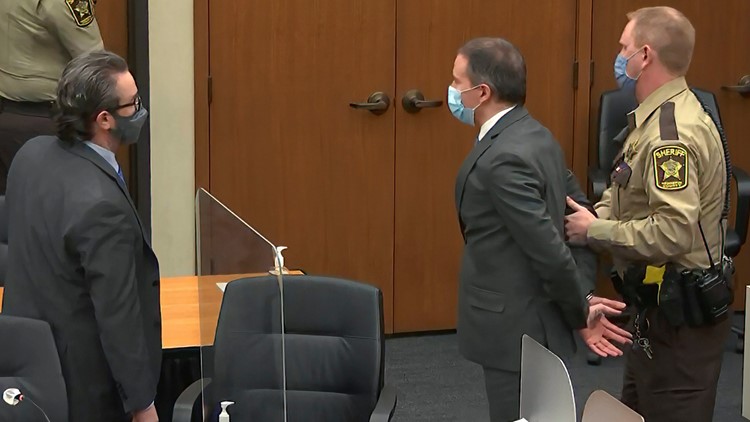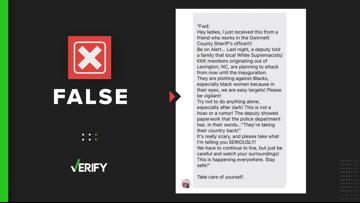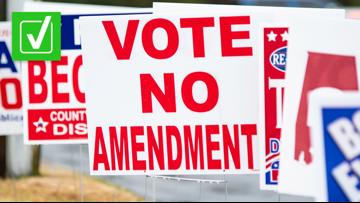UPDATE: On Friday, June 25, 2021, former Minneapolis police officer Derek Chauvin was sentenced to 270 months, or 22.5 years, in prison for the murder of George Floyd by Judge Peter Cahill, with a credit for 199 days of time served.
Cahill said he has included a 22-page memo with Chauvin's sentence that contains his legal analysis.
Following sentencing, Cahill says Chauvin cannot possess a firearm for the rest of his life and he must register as a "predatory offender."
Prior to the sentencing, Cahill denied Chauvin's motion for a new trial.
PREVIOUS REPORT: The trial of Derek Chauvin for the murder of George Floyd ended with a guilty verdict on all three charges: second-degree murder, third-degree murder and second-degree manslaughter.
The conviction of the former Minneapolis police officer was immediately major news across the country, and not just because of the spotlight put on this case. Many claimed it was rare for police officers in general to be convicted of murder.
One viral tweet said Chauvin was the “7th on-duty cop to be convicted of murder since 2005, out of around 15,000 police killings in that time.” A separate viral tweet said, “Chauvin is the eighth officer convicted of murder since 2005. Of over 16,000 killings.” During George Floyd’s family’s press conference following the announcement of the verdict, reverend and civil rights activist Al Sharpton said, “This is the first time... a white police officer in this state was convicted of a murder.”
THE QUESTION
Have very few police officers been convicted of murder since 2005?
THE SOURCES
Dr. Philip Stinson, principal investigator at Bowling Green State University’s Police Integrity Research Group
THE ANSWER
Yes, very few police officers have been convicted of murder since 2005, although since the data hasn’t been publicly released by a federal source, the exact numbers aren’t known.
WHAT WE FOUND
The federal Bureau of Justice Statistics (BJS) has not collected and released data on “arrest-related deaths” since 2012. The BJS released a pilot test of a new methodology for collecting the data in 2019, but has not followed up on that pilot test.
That means the main source of this data comes from independent researchers. Two of the most prominent sources for data are the Bowling Green State University (BGSU) Police Integrity Research Group and the Mapping Police Violence research collaborative.
Dr. Philip Stinson, the BGSU Police Integrity Research Group’s principal researcher, shared with the VERIFY team data from April 14 that found seven police officers had been convicted of murder since 2005 “from an on-duty shooting throughout the United States.”
So while Dr. Stinson’s and BGSU’s data appears to be the source of the exact numbers used in the viral tweets, Chauvin’s conviction wouldn’t be added to it because he didn’t shoot George Floyd. That would require a broader data set.
Mapping Police Violence documents police killings beyond just shootings dating back to 2013. The research collaborative defines a police killing as “a case where a person dies as a result of being shot, beaten, restrained, intentionally hit by a police vehicle, pepper sprayed, tasered, or otherwise harmed by police officers, whether on-duty or off-duty.” While its data includes both on-duty and off-duty police killings, it notes that 97% of the killings in its database happened while a police officer was acting in a law enforcement capacity.
A manual count of Mapping Police Violence’s full database can be downloaded from its front page. As of the database’s last update on April 18, there were at least 13 instances in which a police killing ended in a murder conviction. That would make Chauvin’s conviction the 14th such conviction since 2013. The database includes 9,082 police killings — including four such killings that occurred on the last day the database was updated.
A separate chart by Mapping Police Violence that doesn’t distinguish between murder convictions and other convictions shows about 40 convictions of police officers for killings between January 2013 and February 2020.
Data from Mapping Police Violence also show there has been one other Minnesota police officer known to be convicted for a killing since 2013. That was Mohamed Noor, a Black police officer who was convicted of murdering Justine Ruszczyk Damond. So, Rev. Sharpton’s claim holds true for as far back as data is available for.
However, the exact numbers regarding police violence are difficult to come by. Even the researchers behind Mapping Police Violence, who “believe the data represented on this site is the most comprehensive accounting of people killed by police since 2013,” note “there are undoubtedly police killings that are not included in our database.”
More from VERIFY: When is the trial for the other three officers facing charges for the death of George Floyd?
VERIFY
Our journalists work to separate fact from fiction so that you can understand what is true and false online. Please consider subscribing to our daily newsletter, text alerts and our YouTube channel. You can also follow us on Snapchat, Twitter, Instagram or Facebook.













